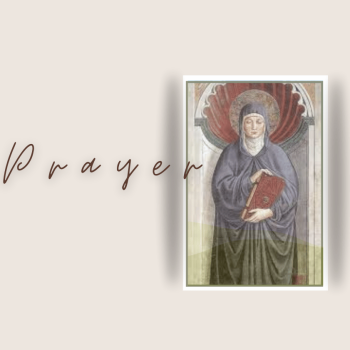Christopher West is a man on a mission. Through thousands of lectures, workshops, and now a new book, West is passionately preaching the good news about sex to Christians—and renewing marriages and healing deep personal wounds in the process. His books Good News About Sex & Marriage, Theology of the Body Explained and Theology of the Body for Beginners are all Catholic best sellers.
In his new book, At the Heart of the Gospel: Reclaiming the Body for the New Evangelization, West takes his deepest dive yet into the (sexual) revolutionary teachings of Pope John Paul II in the Theology of the Body to proclaim the saving power and purpose of human sexuality. As part of the Patheos Book Club on At the Heart of the Gospel, West talked with us about his book, his critics, and why this message about the goodness of human sexuality is urgent today.
Why did you decide to write this book at this time?
Since I first discovered John Paul II's Theology of the Body (TOB) in 1993, I've been doing all that I can to tell others about it. Our world today is desperately in need of a healing, redeeming vision of human sexuality—one that takes us to a freedom beyond the polarizing extremes of sexual indulgence, on the one hand, and sexual repression on the other—and that's what the TOB provides: authentic sexual liberation, which is the freedom to love as we are created to love. It's the freedom to be a real gift to others.
There is still much work to be done in terms of just raising awareness about the TOB, but through the efforts of many fine speakers, authors, and theologians, the word has gotten out, at least to some degree. Now it seems we're at a new stage of needing to clarify what this TOB is really all about. People have raised important questions about that nature of the TOB and they're looking for answers.
Who is your ideal reader? What conversations do you want this book to inspire?
This book was written for anyone and everyone who is concerned about where the sexual revolution has gotten us and how we should respond as Christians. Anyone who is wanting to help the culture recover from the wounds of the sexual revolution, I think, will find this book compelling. And those who are looking for a way to engage the culture in a "new evangelization" will also find this book helpful, I think.
I'd love for this book to inspire open, honest conversation about the foundational role that sexuality plays in understanding our humanity and in understanding Christianity itself. Scripture proclaims God's love for us in spousal terms. The Bible begins with the marriage of man and woman and ends with the Marriage of Christ and the Church. Christianity is an invitation to this ultimate Marriage. Yes, God wants to "marry" us, to "betroth himself to us forever," as the prophet Hosea puts it. And he wanted this plan to be so plain to us that he stamped an image of it right in our bodies. Our bodies tell this story: our bodies proclaim the Gospel message itself.
The Church and the world are in the midst of a profoundly destructive sexual crisis. But where sin abounds, grace abounds all the more. I'm convinced that John Paul II's TOB is an integral part of the grace that is abounding "all the more" in our world today. John Paul II's response to the sexual revolution was basically this: "You wanna talk about sex? Okay, but let's really talk about it. Let's not stop at the surface. Let's enter into the depths of the 'great mystery' of our creation as male and female." When we go into the depths of this "great mystery," we find ourselves at the very heart of the Gospel itself.
Do you expect this book to change anyone's mind? About what?
Some people within the Church have strongly resisted John Paul's teaching on certain points, and not just those who would balk at Catholic sexual ethics. Many people who accept the Church's moral teachings also strongly resist John Paul's teaching on the importance of sexuality in understanding Christ's relationship with the Church; strongly resist the idea that our bodies and the intimacies of spousal union provide an image of Christ's intimacy with us; strongly resist the teaching of the prophets, saints, and mystics of the Church that use, as Pope Benedict says, "boldly erotic images" (see God is Love 9) in describing God's passion for his people.
This resistance is understandable in light of the terrible distortions of the body and sex that are so prevalent in our world today. As John Paul says, because of sin in the world, the body "loses its character as a sign" of God's love, and this makes it very difficult to see the body through any other lens than something pornographic. We've been blinded to the holiness and sacredness of the body and thus find it very difficult to embrace, to quote Pope Benedict once again, "boldly erotic imagery" as something fitting for explaining holy realities. But the good news of the Gospel is that Christ came preaching sight for the blind. The whole point of the TOB is to help us reclaim a vision of the body and sex as a sign of God's love.





